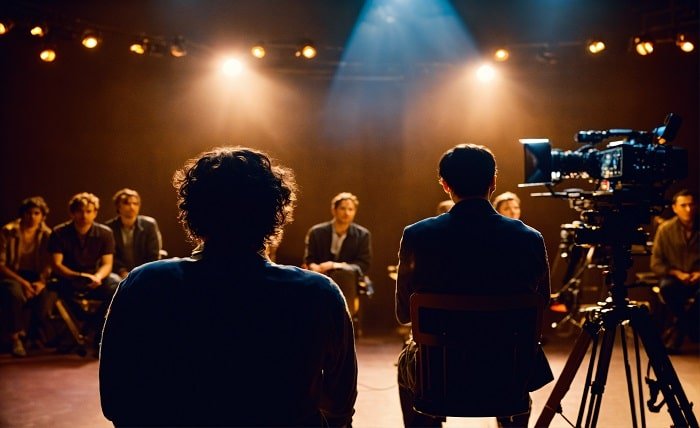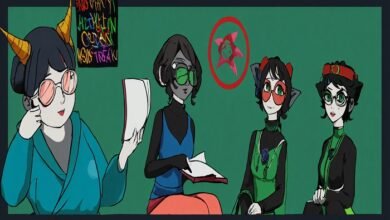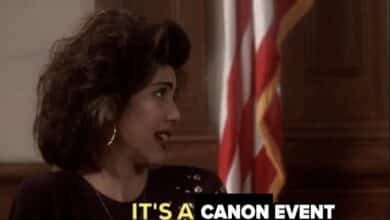
Introduction
When discussing storytelling in literature, film, and media, the term “canon event” often comes up. But what exactly is a canon event example, and why do these moments hold so much significance? In simple terms, a canon event refers to a pivotal or crucial event within the established continuity or storyline of a series. These events are considered canonical, meaning they are an essential part of the story’s universe and cannot be altered or ignored without disrupting the narrative.A canon event plays a vital role in shaping the direction of a narrative, influencing the characters, plot, and themes of the story. These events are often linked to the development of key characters or the progression of the storyline itself. Throughout this article, we will explore various examples of canon events from different genres and media to understand their impact on storytelling.
What Makes a Canon Event Important?
A “canon event example” is not just a random occurrence in a story. It is a turning point, a moment of transformation that is integral to the world of the narrative. Canon events are significant because they:
- Establish the Backstory: These events often provide context or crucial background for characters, setting up motivations and relationships.
- Shaping Character Development: Many times, canon events catalyze the evolution of characters, influencing their behavior, decisions, and relationships.
- Driving the Plot Forward: Without these essential events, the narrative may feel incomplete, meandering, or aimless. Canon events provide the necessary structure.
For instance, in superhero tales, the death of a mentor or the discovery of a superpower might be considered a canon event. In some cases, the event serves as a turning point that leads to the character’s growth or transformation.
Canon Events in Literature
In literature, the idea of a canon event example is widely present in novels and series, especially in works with complex, interwoven plots. One famous example can be seen in J.K. Rowling’s Harry Potter series. Harry’s first encounter with Lord Voldemort and the moment when his parents die are essential canon events that shape the entire narrative. These events not only affect Harry but also set the stage for the ongoing conflict throughout the series.Similarly, in George R.R. Martin’s A Song of Ice and Fire series (the basis for HBO’s Game of Thrones), canon events such as the death of Ned Stark or the Red Wedding significantly affect the characters and push the plot in unexpected directions. These events are part of the canon of the series, meaning they are immutable to the universe Martin has created.
Canon Events in Film and TV Shows
In the realm of film and TV, canon events are just as prevalent, often becoming iconic moments that fans hold dear. A famous canon event example from the superhero genre is the death of Uncle Ben in Spider-Man. This moment serves as the emotional trigger for Peter Parker’s transformation into the web-slinging hero we all know. The death of Uncle Ben is a canonical event that influences Spider-Man’s entire arc and is referenced in nearly every iteration of the character’s story.Another example can be found in the Star Wars universe. The destruction of Alderaan in Star Wars: A New Hope is a significant canon event that propels Luke Skywalker into his journey to become a Jedi. This tragic event shapes the narrative, motivating Luke to join the Rebel Alliance and confront Darth Vader.
Canon Events in Video Games
Video games, too, have their own share of canon events that are crucial to the storyline. One prime example is the event that occurs at the beginning of The Legend of Zelda: Ocarina of Time. Link’s journey begins when he is sent to the future, where he must face the evil sorcerer Ganondorf. This pivotal event sets up the entire game’s plot and is considered a canon moment in the franchise’s timeline.In Final Fantasy VII, a well-known canon event example is the death of Aerith. This event shocks players and leaves an indelible mark on the storyline, influencing Cloud’s motivations for the remainder of the game. The impact of this loss resonates through the narrative, making it one of the most memorable canon events in the gaming world.
Canon Events in Comics
Comics, especially in superhero franchises, are rife with canon events that define the course of the narrative. Take, for instance, the death of Gwen Stacy in The Amazing Spider-Man comics. This event not only shifts Peter Parker’s journey but also sets the stage for future storylines. Gwen Stacy’s death is a defining moment in the comic book’s canon, as it leaves a lasting emotional impact on Spider-Man and his world.Similarly, the “Death of Superman” arc in DC Comics is another prime example of a canon event. Superman’s battle with Doomsday and his apparent death shocked fans and left a void in the superhero landscape, making it a pivotal moment in the DC Comics canon.
How Canon Events Shape Characters and Narrative Arcs
A central element of any canon event is its ability to shape the characters and their respective arcs. These events serve as catalysts for character evolution, causing them to face challenges that push them beyond their limits.For instance, in the Batman comics, the brutal killing of Jason Todd (Robin) is a major canon event that forever alters Bruce Wayne. The loss of Robin causes Batman to become more ruthless in his quest for justice, highlighting the emotional cost of being a vigilante. The event shapes Batman’s psyche and alters the way he operates, creating a darker version of the character in subsequent storylines.In The Matrix, the canon event of Neo’s awakening to his true purpose—his transformation into “The One”—propels the entire trilogy. This event sets Neo on a path of enlightenment and self-discovery, leading to his eventual battle against the machines and the redefinition of humanity’s role in the world.
Why Canon Events Are Inescapable in Their Stories
Canon events are often inescapable because they are foundational to the universe or narrative they are part of. Once they occur, they set in motion a series of consequences that are difficult to undo or ignore. Changing or omitting a canon event can result in continuity errors, inconsistencies in character motivations, and a loss of emotional impact.In Star Wars, for example, if the destruction of Alderaan were to be ignored or altered, the emotional weight of Luke’s journey would be diminished. The event serves as a key moment of change for him, and without it, his motivations would feel hollow.Similarly, in the world of comic books, the death of iconic characters like Gwen Stacy or Uncle Ben is so ingrained in the fabric of the stories that altering them would drastically change the dynamics of their respective universes.
Conclusion
In conclusion, a “canon event example” is an essential plot point, character moment, or significant development that shapes the narrative in a meaningful way. These events serve as the backbone of a story, guiding the characters through their journeys and influencing the overall trajectory of the plot. Whether it’s the death of a loved one, a heroic victory, or a personal loss, canon events are vital to the continuity and emotional resonance of storytelling.From literature and film to comics and video games, canon events are integral to the creation of compelling narratives. They help deepen the connection between characters and their world, ensuring that the audience is invested in the story. So, the next time you experience a story that moves you, take a moment to reflect on the canon events that make it unforgettable.
FAQs
1. What is the difference between a canon event and a non-canon event?
A canon event is an official part of a story’s continuity, while a non-canon event is an alternative storyline or an event that is not considered part of the main narrative universe.
2. Can a canon event be retconned?
In some cases, a canon event can be retconned (retroactively changed), but it usually has significant consequences for the narrative. Retcons are controversial and often disrupt established continuity.
3. Are all pivotal events in stories considered canon events?
Not all pivotal events are canon. A canon event is one that is recognized as part of the official story arc, while other pivotal moments may belong to alternate universes or side stories.
4. How do canon events affect fan theories?
Canon events often serve as the foundation for fan theories. Fans build their theories based on these events, and any change to a canon event can lead to widespread discussions and debates within the fan community.
5. Do all genres have canon events?
Yes, all genres—whether fantasy, sci-fi, drama, or mystery—have canon events. These events may vary in nature, but they are essential to advancing the plot and developing characters across different storytelling mediums.





